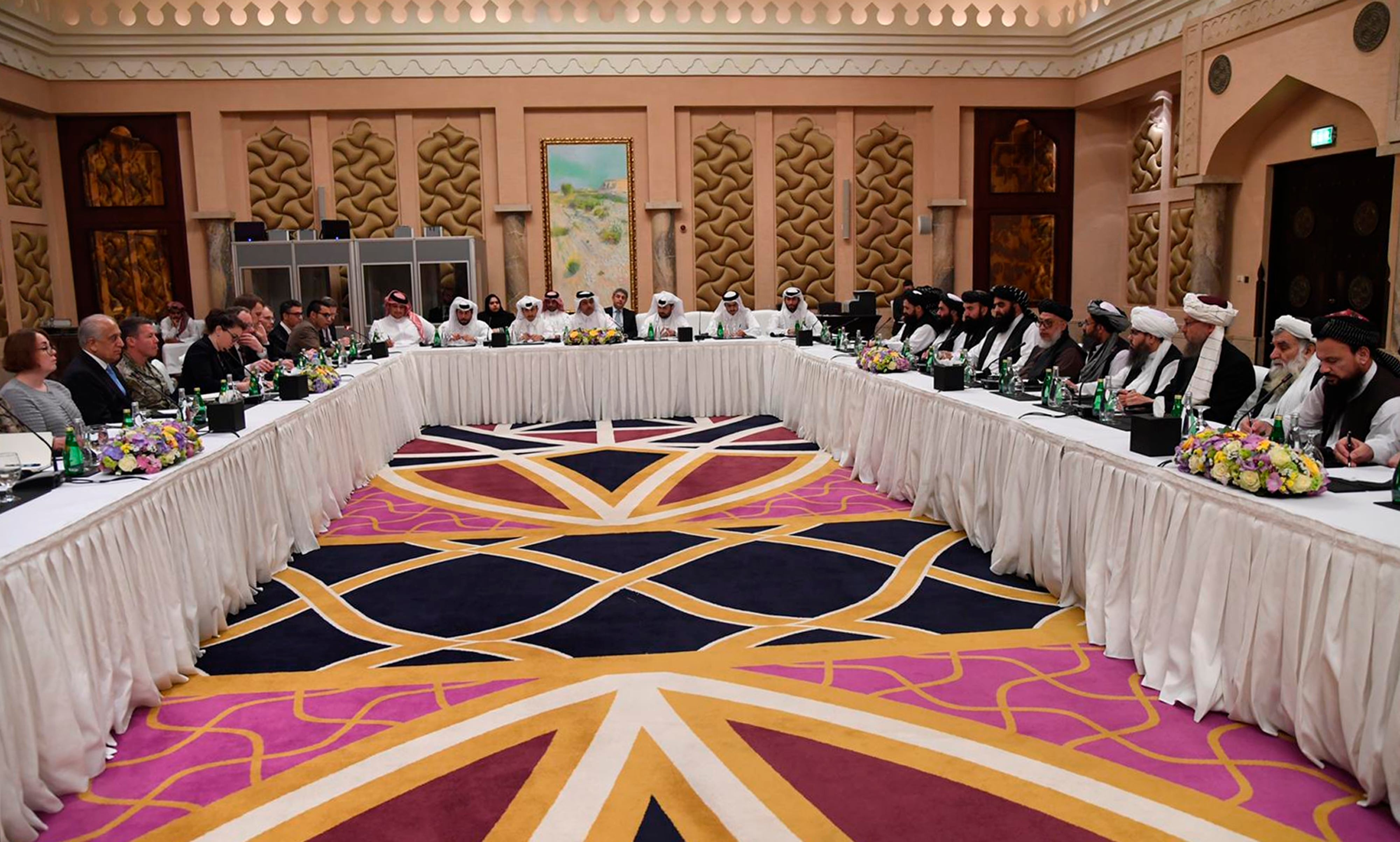Afghanistan’s Taliban and U.S. representatives have held six rounds of peace talks since October in the Gulf state of Qatar, where the group maintains a political office.
While there have been significant steps toward a deal to end the nearly 18 years of war, those diplomatic gains have come with some costs — namely travel costs for the Taliban, according to the spokesman for the Democratic chair of the House Appropriations Subcommittee on Defense.
Kevin Spicer, the spokesman for Indiana Democrat Pete Visclosky, told Roll Call that the Trump administration asked Congress for funds to cover the Taliban’s costs for transportation, lodging, food and supplies.
“The Defense Department requested fiscal 2020 funding to support certain reconciliation activities, including logistic support for members of the Taliban and, in March 2019, they sent a notification letter to the Committee on using fiscal year 2019 funds for similar activities,” Spicer said. He added that the request “would implicate provisions of law concerning material support to terrorists... ."
Consequently, Visclosky’s committee approved a defense spending bill for fiscal 2020 on Wednesday that bars reimbursing the Taliban.
RELATED

And as noted in the Roll Call story, the Taliban is a well-funded organization that gets much of its money from opium sales.
Steve Ellis, executive vice president of Taxpayers for Common Sense, told Roll Call that the request for reimbursing the Taliban is like “life imitating The Onion.”
“Even if you leave aside that they are still conducting operations against our interests and allies, having to pay for someone to be at the table undercuts our bargaining position and demonstrates their lack of enthusiasm for a deal,” Ellis told CQ Roll Call.
Stephen Weigand is digital content editor at Sightline Media Group.





